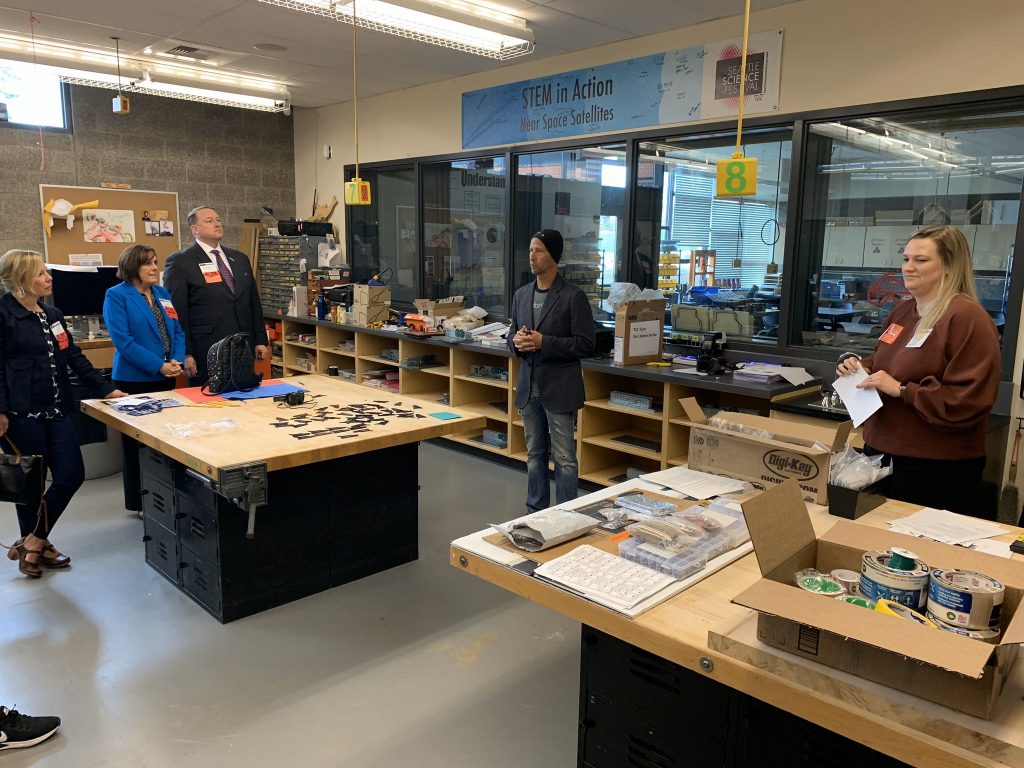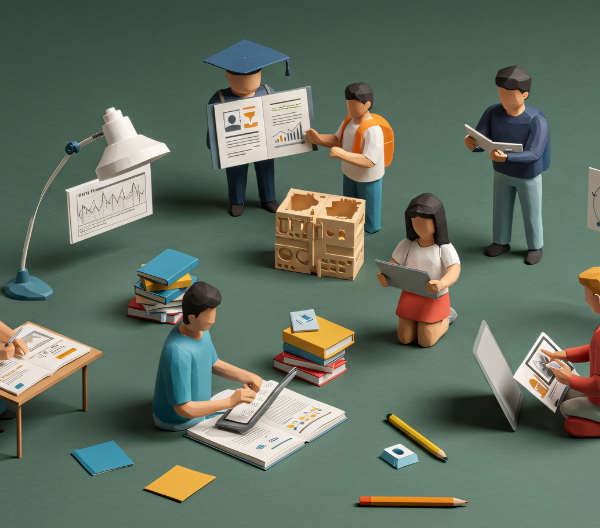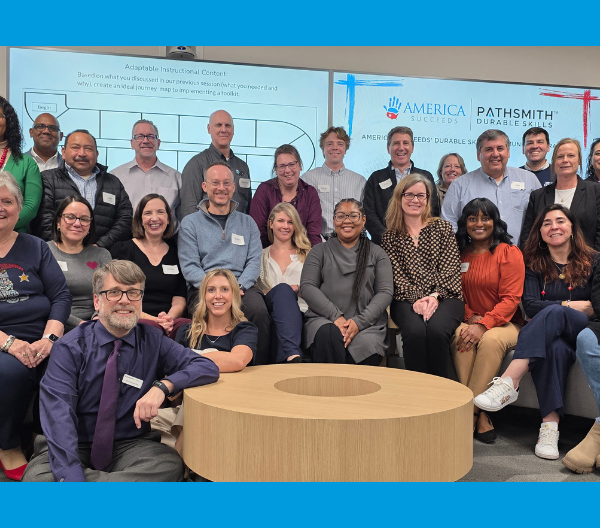America Succeeds closed out February 2020 with a convening of “superfriends” – innovative educators, thought partners from across the education policy and advocacy space, business leaders, and philanthropy – in Seattle, Washington. Our goal was to build shared language and a common vision around the idea of agile educators, recognizing the innovative work that is already happening in classrooms across the country.
Exploring local school innovation
We started the morning with a panel featuring Julia Bamba, principal of the big picture learning school Gibson Ek, and America Succeeds’ partner, Tom Vander Ark of Getting Smart. Two students also joined the discussion, sharing their experiences of completing off-campus internships two days per week and navigating high school with a Mastery Transcript, rather than a traditional GPA and credit structure. The group then set off to explore two Bellevue-area middle schools, where agile educators are reinventing the student experience and encouraging the next generation of tinkerers to tackle the world’s challenges.
Tackling a big question: what is an agile educator?
Buzzing from the excitement of seeing students in action, the “superfriends” met on the Microsoft campus to continue the program. Participants learned more about Microsoft’s HackingSTEM program and Cajon Valley Union School District’s World of Work, before digging into an engaging, collaborative, problem-solving conversation.
Participants shared haikus, pineapple metaphors, and some great alliterative phrases – “ever-learning, ever-adjusting, ever-green”. We heard stories of personal impact and some personal reflection on what this means for our work in education and for our roles as parents and advocates. Most importantly, the group built consensus around the definition of an agile educator and the many characteristics they embody – see the word cloud below for the most-used descriptors:

We agree that agile educators are student-centered with an insatiable curiosity, are willing to innovate, have the freedom to fail, and are passionate about supporting each and every student’s unique development – noting the importance of equity and social justice as a critical component of their practice. Commonly used descriptors were: creative, innovative, growth mindset, and personalized. Download a full recap of the discussion here.
Engaging innovative business perspectives
Finally, the group traveled to the TEAGUE Corporate Headquarters in downtown Seattle where Principal Futurist Devin Liddell and Creative Director Clint Rule shared more about “Designing for Impossible Tensions.” The takeaway was clear: the success of an innovative design project relies on a creative, flexible, and interdisciplinary approach with an openness to engage all stakeholders in providing feedback. The same can be said of successful agile educators, and supporting the expansion of systems where agile educators thrive can help move the needle in better preparing students for the future of work.
What’s next for America Succeeds’ agile educator initiative?
This is just the beginning of America Succeeds’ agile educator work. We are more confident than ever about the educators that are blazing new trails in creating the classrooms of tomorrow, today. We are also eagerly exploring the emerging opportunities for businesses to support and accelerate their work over the coming year. Keep an eye out for information about additional events and upcoming agile educator resources from the America Succeeds team.












